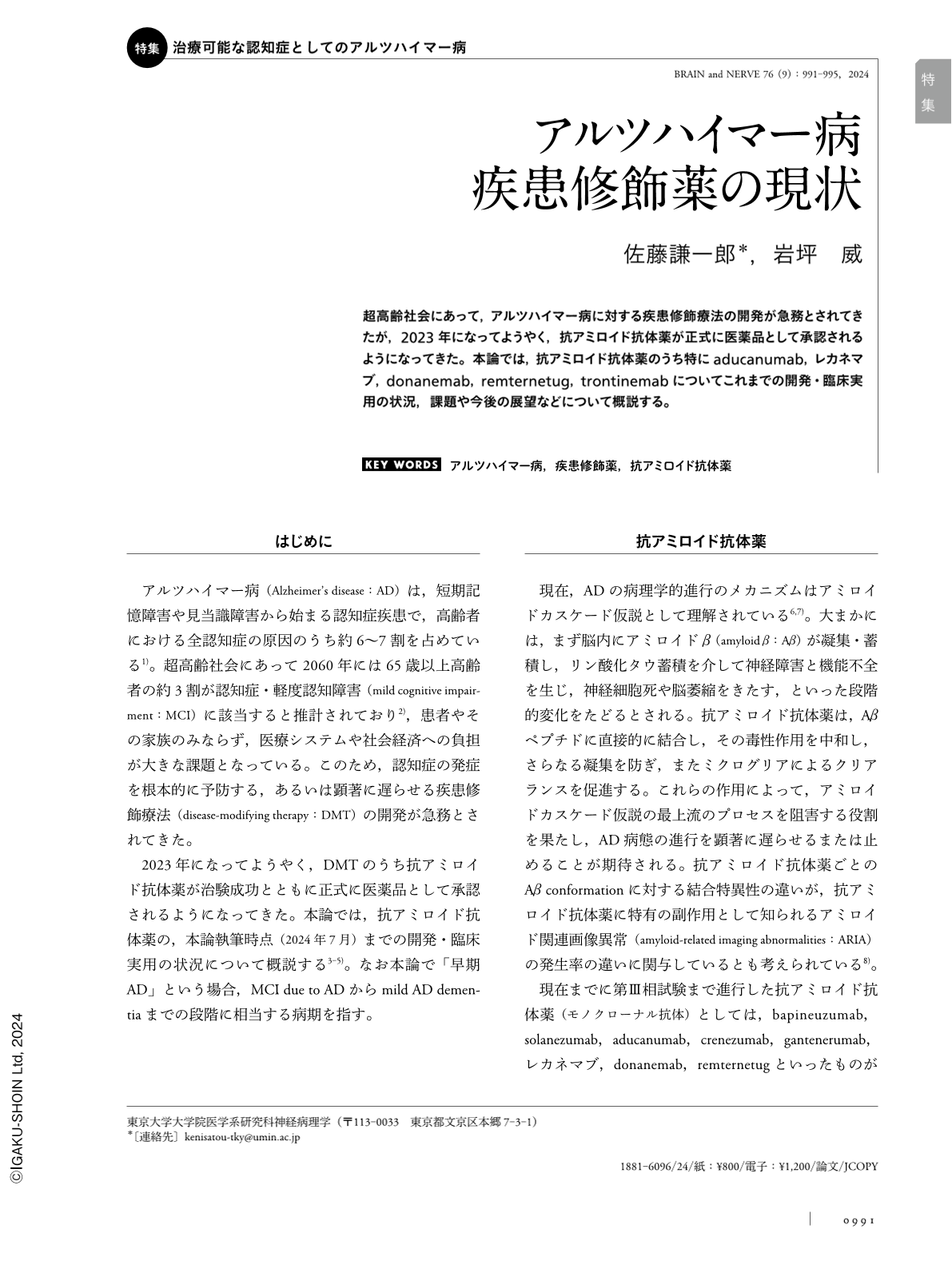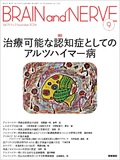Japanese
English
- 有料閲覧
- Abstract 文献概要
- 1ページ目 Look Inside
- 参考文献 Reference
超高齢社会にあって,アルツハイマー病に対する疾患修飾療法の開発が急務とされてきたが,2023年になってようやく,抗アミロイド抗体薬が正式に医薬品として承認されるようになってきた。本論では,抗アミロイド抗体薬のうち特にaducanumab,レカネマブ,donanemab,remternetug,trontinemabについてこれまでの開発・臨床実用の状況,課題や今後の展望などについて概説する。
Abstract
Alzheimer's disease (AD) is a common dementia disorder in the elderly individuals, accounting for approximately 60-70% of all dementia cases. Recently, significant progress has been made in developing and approving anti-amyloid antibody drugs as one of the disease-modifying therapies (DMT) that aim to slow the progression of AD by targeting amyloid-beta accumulation in the brain. Notable drugs such as aducanumab, lecanemab, and donanemab have shown potential in clinical trials, leading to the approval of aducanumab and lecanemab, and approval is also expected for donanemab. Other anti-amyloid drugs such as remternetug and trontinemab are also under development. However, challenges remain, including adverse effects like amyloid-related imaging abnormalities (ARIA) and the need for addressing healthcare preparedness to support their use. This paper outlines the current status of DMT for AD, including the clinical trial results and current applications of these drugs. It also discusses the existing challenges to improve the safety and accessibility of DMTs.

Copyright © 2024, Igaku-Shoin Ltd. All rights reserved.


